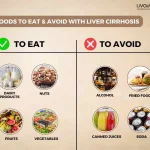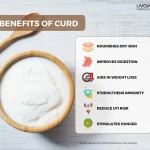This article has been reviewed by experts

Apple cider vinegar is widely celebrated for its potential health benefits and is often touted as a cure for almost every known ailment. While it is true that apple cider can be good for your health, you should keep in mind that many of its health benefits are exaggerated or misrepresented by marketers. At the same time, possible side effects are ignored or downplayed. If you want to really enjoy this ingredient without compromising your health, it’s important to have a realistic perception of both apple cider vinegar benefits and side effects. As there has been so much attention directed towards the potential health benefits, here’s a more in depth look at potential apple cider vinegar side effects that you should know about.
Apple Cider Vinegar Side Effects
- Increased acid reflux: If you have acid reflux or GERD, it may be best to steer clear of apple cider vinegar. Consuming foods like apple cider that contain acetic acid will only add to stomach acid content, increasing the severity or frequency of heartburn, acid reflux and other GERD symptoms.
- Appetite loss Apple cider vinegar can adversely affect appetite in some individuals, leading to excessive weight loss (1). This can be harmful as rapid or excess weight loss poses a serious health risk. This effect of appetite loss and feelings of fullness have been observed with the intake of apple cider vinegar or acetic acid.
- Delayed stomach emptying. Apple cider vinegar consumption may interfere with nutrient absorption and bowel movements as it slows the rate at which food leaves the stomach and enters the lower digestive tract (2). This can cause malnutrition and a variety of gastrointestinal symptoms such as bloating, nausea, and heartburn. This effect may be more pronounced in people with diabetes and gastroparesis, a condition that affects the movement of food in the stomach.
- Nausea and vomiting. Apple cider vinegar may cause nausea and vomiting in some people, especially if it’s consumed on an empty stomach or in large amounts. The precise reasons for this are not understood but it may be linked to other apple cider vinegar side effects on digestion, such as irritating the lining of the gastrointestinal tract.
- Throat burns. This is among the most painful of all apple cider vinegar side effects and is again a result of the acidic contents of apple cider. Undiluted vinegar poses a greater risk of causing oesophageal or throat burns, which are not only painful but can also give rise to other complications. In fact, data shows that acetic acid from vinegar is the most common culprit behind throat burns in children (3).
- Drug interactions. The unregulated and unsupervised use of apple cider vinegar can also pose a serious risk to individuals who are taking medications to treat other pre-existing conditions. It is known to interfere with both diabetes and heart medications, among others, causing dangerous drops in blood sugar or potassium levels.
- Allergic reactions. When consumed in small amounts and diluted adequately, apple cider vinegar is usually safe for consumption. However, in some individuals, even small amounts can be deadly. This is because there are individuals who can develop an allergic reaction to apple cider vinegar, resulting in symptoms such as itching, hives, swelling and breathing difficulty.
- Increased risk of osteoporosis This side effect is mainly linked to high intake of apple cider vinegar, as large doses can cause a decline in potassium levels and bone loss. This develops over time and is irreversible. Although it is rare, there are some cases of women experiencing bone loss and developing osteoporosis after consuming apple cider vinegar for years. One such incident involved a woman who was just 28 years old (4).

- Erosion of tooth enamel. Like most acidic ingredients, apple cider vinegar can cause dental erosion or loss of tooth enamel, which increases the risk of dental disease and tooth loss. This effect is again typically observed with undiluted or excessive consumption of apple cider vinegar. As indicated from research, this risk can vary depending on the pH levels of vinegar too, with some posing a higher risk than others (5).
- Skin burns. You may have also come across recommendations to use apple cider vinegar for skin, but this can be dangerous. Because of its highly acidic nature, vinegar can cause skin burns when applied directly. There are documented cases of people, including children, suffering burns after using apple cider topically to treat moles and other skin problems (6,7).
- Acne and skin infections. Apple cider vinegar may have antibacterial and anti-inflammatory properties, but applying it to the skin may also disrupt the skin’s natural pH balance and cause irritation; that is, irritation in addition to possible skin burns. Some people may also experience acne breakouts or skin infections after using apple cider vinegar topically.
- Headaches and migraines. Some people may experience headaches or migraines after consuming apple cider vinegar, especially if they are prone to these conditions. It’s hard to tell why this happens, but it is thought that this reaction is mainly a result of vinegar’s acidity or its effect on blood sugar levels. Anyone who suffers from frequent headaches or migraines should therefore be cautious with apple cider vinegar.
- Bleeding disorders. Apple cider vinegar may have blood-thinning effects, which could increase the risk of bleeding in people with bleeding disorders or who take blood-thinning medications. The vinegar may also interfere with the clotting process and prolong bleeding time.
- Kidney damage: Apple cider vinegar side effects on kidneys are perhaps the most troubling because of the seriousness of kidney disease. The risk of further damage to the kidneys from apple cider consumption is especially high for anyone who has already had kidney problems as acetic acid from apple cider is known to cause kidney damage (8).
- Hair damage: Contrary to claims that apple cider can promote hair growth or provide relief from a wide variety of hair and scalp conditions such as dandruff, there is no evidence to support these claims. Instead, when you use apple cider vinegar for hair, side effects can include excessive drying and breakage of hair due to the high acid content.

Apple Cider Vinegar Safety Advice
As is often the case, apple cider vinegar side effects are mainly associated with improper use, so follow these safety tips:
- When using apple cider vinegar make it a point to dilute it with water or other beverages.
- Consume in moderation only, with a daily dose of no more than 1 or 2 teaspoons.
- If using topically, always dilute and do a test patch first.
- If you are on medication or have a pre-existing condition, speak to your doctor before using apple cider vinegar.
- Always wash out your mouth thoroughly after consuming apple cider vinegar to avoid dental problems.
Conclusion
Remember that while apple cider and apple cider vinegar can have potential health benefits, individual responses may vary, and it’s essential to use them sensibly and within recommended guidelines to avoid any adverse effects.
FAQs
Is it safe to drink apple cider vinegar every day?
If consumed in small and safe doses, and diluted adequately, it is safe for most people.
Is it safe to drink apple cider vinegar during pregnancy or while breastfeeding?
Consult with your healthcare provider before consuming apple cider vinegar during pregnancy or breastfeeding to ensure it’s safe for your specific situation.
Can apple cider vinegar lower blood sugar too much?
Yes, depending on the dose and strength, it could potentially lower blood sugar excessively causing hypoglycemia.
References:
- https://www.nature.com/articles/ijo2013157
- https://bmcgastroenterol.biomedcentral.com/articles/10.1186/1471-230X-7-46
- https://onlinelibrary.wiley.com/doi/abs/10.1111/j.1651-2227.1994.tb18281.x
- https://karger.com/nef/article-abstract/80/2/242/209061/Hypokalemia-Hyperreninemia-and-Osteoporosis-in-a?redirectedFrom=fulltext
- https://pubmed.ncbi.nlm.nih.gov/24839821/
- https://pubmed.ncbi.nlm.nih.gov/26155328/
- https://www.jaad.org/article/S0190-9622(11)02243-2/fulltext
- https://www.sciencedirect.com/science/article/pii/S1347861321000359

























1 Comments